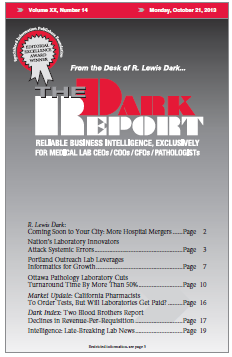CEO SUMMARY: Prices recently established for molecular diagnostic tests are so low that they put patient access in jeopardy, declared a new lab industry coalition in a statement delivered to members of Congress. Called the Coalition to Strengthen the Future of Molecular Diagnostics, the organization also told members of Congress that—not only are the prices …
New MoPath Lab Coalition Takes its Case to Congress Read More »
To access this post, you must purchase The Dark Report.


